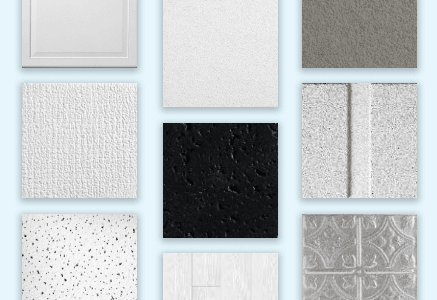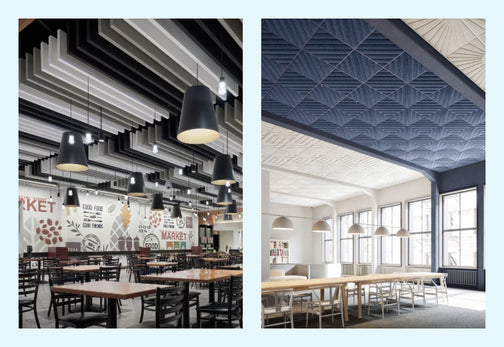Durable Ceiling Tiles
Durable Ceiling Tiles
- Classic White
- Rustic Pine
- Painted White
- Driftwood Gray
- Beadboard
- Woven White
- Natural Maple
- Woven Charcoal Gray
- White Wash
- Classic Maple
- Weathered
- Coastal White
- +6
- White
- Black
- Boxwood
- Feldspar
- Fossil
- Grey Stone
- Light Grey
- Lilac
- Mist
- Oat
- Rainstorm
- Sandstone
- Stone
- +7
Durable Ceiling Tiles
Durable ceiling tiles from Armstrong ceilings are available for your space and are specially made to withstand everyday life.These ceiling tiles should be considered in areas where usage requires added levels of impact, scratch, or soil resistance or when the area above the tiles will be accessed frequently.
Different traits of our durable ceiling tiles are: Impact Resistance - tiles with this trait can handle items bouncing off of them. These tiles are best for spaces like school gymnasiums, cafeterias, and other areas that need to withstand occasional abuse.
Scratch Resistance - Ceiling tiles that won't show wear and tear from frequent plenum access. Ideal for corridors and other areas where frequent plenum access is necessary to maintain HVAC, other building systems, and more.
Soil Resistance - Ceilings that resist dirt accumulation and maintain their appearance, acoustics and light reflectance. Ideal for kitchens, hospitals, and cafeterias.
No matter what your reasoning is for a new ceiling, you can feel confident that Armstrong ceiling tiles will satisfy your space and your taste.
What is an alternative to ceiling tiles?
Alternatives to ceiling tiles include drywall, popcorn ceiling, or an exposed structure ceiling.
How long does ceiling tile last?
It is recommended to update your ceiling tile every 10 years. Our 10 year system installation warranty covers the cost of replacing your ceiling under normal conditions.
What is the best material for a bathroom ceiling?
Drywall, acrylic, tile, cement board, and fiberglass are great materials to consider for a bathroom ceiling.
What does class A ceiling tile mean?
The flame spread rating of a material refers to how rapidly flame spreads on one surface as compared to another. The flame spread rating is broken into three categories: Class A, Class B and Class C. Class A products have a flame-spread of 25 or less, and smoke developed of 50 or less.





























 Thanks for subscribing!
Thanks for subscribing!

